Submitted:
23 January 2024
Posted:
24 January 2024
You are already at the latest version
Abstract
Keywords:
1. Introduction
2. Vastness of the Tribology Subjects: A Possible Classification
2.1. Fundamental Tribology
2.2. Tribology of Materials and Lubricants
2.3. Micro and Nanotribology
2.4. Industrial Tribology
2.5. Biotribology
2.6. New Frontiers of Tribology
3. Tribology and the Sustainable Development Goals
4. Discussion and Conclusions
Funding
Conflicts of Interest
References
- Dowson, D. History of Tribology, 2nd ed.; Professional Engineering Publishing Limited: London and Bury St Edmunds, UK, 1998; 768p. [Google Scholar]
- Jost, H.P. Lubrication (Tribology) Education and Research, A Report on the Present Position and Industry’s Needs; Her Majesty’s Stationary Office, Department of Education and Science: London, 1966; 80p. [Google Scholar]
- Ciulli, E. Tribology and Industry: From the Origins to 4.0. Front. Mech. Eng. 2019, 5, 1–12. [Google Scholar] [CrossRef]
- Tabor, D.; Bowden, F.P. Friction: an introduction to tribology; Heinemann: London, UK, 1973. [Google Scholar]
- Neale, M.J. Lubrication. In A Tribology Handbook, 2nd ed.; Butterworth-Heinemann: Oxford, UK, 1995. [Google Scholar]
- Halling, J. Principles of tribology; Macmillan: London, UK, 1975. [Google Scholar]
- Czichos, H. Tribology: a systems approach to the science and technology of friction, lubrication and wear; Elsevier: Amsterdam, 1978. [Google Scholar]
- Jones, M.H.; Scott, D. , (Eds). Industrial Tribology - The Practical Aspects of Friction, Lubrication and Wear; Tribology Series, 8; Elsevier: Amsterdam, 1983. [Google Scholar]
- Hutchings, I.M. Tribology: friction and wear of engineering materials; Edward: London, 1992. [Google Scholar]
- Stachowiak, G.W.; Batchelor, A.W. Engineering tribology; Elsevier: Amsterdam, 1993. [Google Scholar]
- Williams, J.A. Engineering tribology; Oxford University Press: Oxford, 1994. [Google Scholar]
- Bhushan, B. Principles and applications of Tribology; John Wiley & Sons: USA, 1999. [Google Scholar]
- Gohar, R.; Rahnejat, H. Fundamentals of Tribology; Imperial College Press: London, 2008. [Google Scholar]
- VV.AA. Abstract of papers from World Tribology Congress; London 8-12 September 1997, Mechanical Engineering Publications Limited: London, 1997; 913p, ISBN 1 86058 109 9. [Google Scholar]
- Franek, F.; Bartz, W.J.; Pauschitz, A. (Eds.) Abstract of Papers from 2nd World Tribology Congress; Vienna, 3-7 September 2001; Österreichische Tribologische Gesellshaft: Wien, Austria, 2001; 870p, ISBN 3-901657-08-8. [Google Scholar]
- VV.AA. World Tribology Congress III; Washington D.C., 12-16 September 2005, ASME Conference Proceedings, 2005, ISBN 0-7918-4201-0 (Vol.1), 0-7918-4202-9 (Vol.2).
- VV.AA. Proceedings of the World Tribology Congress 2009; 4th WTC, Kyoto, Japan, 6-11 September 2009, Japanese Society of Tribologists: Tokyo, Japan, 2009, ISBN 978-4-9900139-9-8, 938 pp.
- VV.AA. WTC2013 - 5th World Tribology Congress; 8-13 September 2013, Torino, Italy, 2013, ISBN 978-88-908185, on flash pen.
- VV.AA. WTC 2017 - the 6th World Tribology Congress; Beijing, China, September 17 – 22, 2017, on flash pen.
- VV.AA. WTC 2022 - 7th World Tribology Congress; July 10-15, 2022, Lyon, France. Available online: https://www.wtc-2022.org/abstract/index.php?onglet=27 (last accessed on 26 October 2023).
- Ciulli E. Tribology and Sustainable Development Goals. In Proceedings of I4SDG Workshop 2021. I4SDG 2021; Quaglia G., Gasparetto A., Petuya V., Carbone G., Eds., Mechanisms and Machine Science, vol 108, Springer, Cham, 2022, pp. 438–447. [CrossRef]
- United Nations General Assembly: A/RES/70/1 - Transforming our world: the 2030 Agenda for Sustainable Development, 1–35 (2015). Available online: https://sdgs.un.org/2030agenda (last accessed on 26 September 2023).
- THE 17 GOALS Homepage. https://sdgs.un.org/goals (last accessed on 26 September 2023).
- Meng, Y.; Xu, J.; Jin, Z.; Prakash, B.; Hu, Y. A review of recent advances in tribology. Friction 2020, 8, 221–300. [Google Scholar] [CrossRef]
- Meng, Y.; Xu, J.; Ma, L.; Jin, Z.; Prakash, B.; Ma, T.; Wang, W. A review of advances in tribology in 2020–2021. Friction 2022, 10, 1443–1595. [Google Scholar] [CrossRef]
- Johns-Rahnejat, P.M.; Rahmani, R.; Rahnejat, H. Current and Future Trends in Tribological Research. Lubricants 2023, 11, 391. [Google Scholar] [CrossRef]
- Ciulli, E.; Forte, P.; Antonelli, F.; Minelli, R.; Panara, D. Tilting Pad Journal Bearing Ball and Socket Pivots: Experimental Determination of Stiffness. Machines 2022, 10, 81. [Google Scholar] [CrossRef]
- Grabovic, E.; Artoni, A.; Gabiccini, M.; Guiggiani, M.; Mattei, L.; Di Puccio, F.; Ciulli, E. Friction-induced efficiency losses and wear evolution in hypoid gears. Machines 2022, 10, 748. [Google Scholar] [CrossRef]
- Gohar, R.; Cameron, A. Optical measurement of oil film thickness under elasto-hydrodynamic lubrication. Nature 1963, 200, 458–459. [Google Scholar] [CrossRef]
- Gohar, R.; Cameron, A. The mapping of elastohydrodynamic contacts. Trans. ASLE 1967, 10, 215–225. [Google Scholar] [CrossRef]
- Al-Asadi, M.M.; Al-Tameemi, H.A. A review of tribological properties and deposition methods for selected hard protective coatings. Trib. Int. 2022, 176. [Google Scholar] [CrossRef]
- Ren, Y.; Zhang, L.; Xie, G.; Li, Z.; Chen, H.; Gong, H.; Xu, W.; Guo, D.; Luo, J. A review on tribology of polymer composite coatings. Friction 2021, 9, 429–470. [Google Scholar] [CrossRef]
- Wang, Z.; Ye, R.; Xiang, J. The performance of textured surface in friction reducing: A review. Trib. Int. 2023, 177. [Google Scholar] [CrossRef]
- Shi, G.; Yu, X.; Meng, H.; Zhao, F.; Wang, J.; Jiao, J.; Jiang, H. Effect of surface modification on friction characteristics of sliding bearings: A review. Trib. Int. 2023, 177, 107937. [Google Scholar] [CrossRef]
- Liu, T.; Panwar, P.; Khajeh, A.; Rahman, M.H.; Meneze, P.L.; Martini, A. Review of Molecular Dynamics Simulations of Phosphonium Ionic Liquid Lubricants. Tribol Lett 2022, 70, 44. [Google Scholar] [CrossRef]
- Rahman, M.M.; Islam, M.; Roy, R.; Younis, H.; AlNahyan, M.; Younes, H. Carbon Nanomaterial-Based Lubricants: Review of Recent Developments. Lubricants 2022, 10, 281. [Google Scholar] [CrossRef]
- Lu, X.; Gu, X.; Shi, Y. A review on the synthesis of MXenes and their lubrication performance and mechanisms. Trib. Int. 2023, 179, 108170. [Google Scholar] [CrossRef]
- Zhang, W.; Li, T.; An, R.; Wang, J.; Tian, Y. Delivering quantum dots to lubricants: Current status and prospect. Friction 2022, 10, 1751–1771. [Google Scholar] [CrossRef]
- Duan, L.; Li, J.; Duan, H. Nanomaterials for lubricating oil application: A review. Friction 2023, 11, 647–684. [Google Scholar] [CrossRef]
- Wang, B.; Qiu, F.; Barber, G.C.; Zou, Q.; Wang, J.; Guo, S.; Yuan, Y.; Jiang, Q. Role of nano-sized materials as lubricant additives in friction and wear reduction: A review. Wear 2022, 490–491. [Google Scholar] [CrossRef]
- Klein, J. Hydration lubrication. Friction 2013, 1, 1–23. [Google Scholar] [CrossRef]
- Han, T.; Zhang, S.; Zhang, C. Unlocking the secrets behind liquid superlubricity: A state-of-the-art review on phenomena and mechanisms. Friction 2022, 10, 1137–1165. [Google Scholar] [CrossRef]
- Ge, X.; Chai, Z.; Shi, Q.; Liu, Y.; Wang, W. Graphene superlubricity: A review. Friction 2023, 1953–1973. [Google Scholar] [CrossRef]
- Bhushan, B.; Israelachvili, J.N.; Landman, U. Nanotribology: friction, wear and lubrication at the atomic scale. Nature 1995, 374, 607–616. [Google Scholar] [CrossRef]
- Ciulli, E.; Ferraro, R.; Forte, P.; Innocenti, A.; Nuti, M. Experimental Characterization of Large Turbomachinery Tilting Pad Journal Bearings. Machines 2021, 9, 273. [Google Scholar] [CrossRef]
- Costa, H.L.; Schille, J.; Rosenkranz, A. Tailored surface textures to increase friction—A review. Friction 2022, 10, 1285–1304. [Google Scholar] [CrossRef]
- Emami, M.; Sadeghi, M.H.; Diaa Sarhan, A.A.; Hasani, F. Investigating the Minimum Quantity Lubrication in grinding of Al2O3 engineering ceramic. Journal of Cleaner Production 2014, 66, 632–643. [Google Scholar] [CrossRef]
- Kimura, Y. Tribology as a maintenance tool. In New Directions in Tribology; Hutchings, I.M., Ed.; Mechanical Engineering Publications Limited: London, 1997; pp. 299–308. [Google Scholar]
- Tung, S. C.; Paxton, C.; Liang, F. Overview and future trends of manufacturing lubrication and conditioning monitoring technologies. In World Tribology Congress III, WTC2005, ASME Conference Proceedings, Washington DC, 2005.
- Kumar, A.; Sharma, A.K.; Katiyar, J.K. State-of-the-Art in Sustainable Machining of Different Materials Using Nano Minimum Quality Lubrication (NMQL). Lubricants 2023, 11, 64. [Google Scholar] [CrossRef]
- Orgeldinger, C.; Seynstahl, A.; Rosnitschek, T.; Tremmel, S. Surface Properties and Tribological Behavior of Additively Manufactured Components: A Systematic Review. Lubricants 2023, 11, 257. [Google Scholar] [CrossRef]
- Peng, H.; Zhang, H.; Fan, Y.; Shangguan, L.; Yang, Y. A Review of Research on Wind Turbine Bearings’ Failure Analysis and Fault Diagnosis. Lubricants 2023, 11, 14. [Google Scholar] [CrossRef]
- Dowson, D. Tribology: An Inaugural Lecture by D. Dowson. University of Leeds Press: Leeds, UK, 1968. [Google Scholar]
- Charnley, J. The Lubrication of Animal Joints in Relation to Surgical Reconstruction by Arthroplasty. Ann. Rheum. Dis. 1960, 19, 10–19. [Google Scholar] [CrossRef] [PubMed]
- Charnley, J.; Kamangar, A.; Longfield, M.D. The optimum size of prosthetic heads in relation to the wear of plastic sockets in total replacement of the hip. Med. Boil. Eng. 1969, 7, 31–39. [Google Scholar] [CrossRef] [PubMed]
- Dowling, J.; Atkinson, J.R.; Dowson, D.; Charnley, J. The characteristics of acetabular cups worn in the human body. J. Bone Jt. Surg. Br. Vol. 1978, 60, 375–382. [Google Scholar] [CrossRef] [PubMed]
- Xu, W.; Yu, S.; Zhong, M. A review on food oral tribology. Friction 2022, 10, 1927–1966. [Google Scholar] [CrossRef]
- Zheng, Y.; Bashandeh, K.; Shakil, A.; Jha, S.; Polycarpou, A.A. Review of dental tribology: Current status and challenges, Trib. Int. 2022, 166, 107354. [Google Scholar] [CrossRef]
- Yadav, R.; Lee, H.; Lee, J.-H.; Singh, R.K.; Lee, H.-H. A comprehensive review: Physical, mechanical, and tribological characterization of dental resin composite materials. Trib. Int. 2023, 179. [Google Scholar] [CrossRef]
- Zhang, X.; Zhang, Y.; Jin, Z. A review of the bio-tribology of medical devices. Friction 2022, 10, 4–30. [Google Scholar] [CrossRef]
- Ruggiero, A.; Merola, M.; Affatato, S. Finite element simulations of hard-on-soft hip joint prosthesis accounting for dynamic loads calculated from a Musculoskeletal model during walking. Materials 2018, 11, 574. [Google Scholar] [CrossRef]
- Affatato, S.; Ruggiero, A. A Perspective on Biotribology in Arthroplasty: From In Vitro toward the Accurate In Silico Wear Prediction. Appl. Sci. 2020, 10, 6312. [Google Scholar] [CrossRef]
- Mattei, L.; Tomasi, M.; Artoni, A.; Ciulli, E.; Di Puccio, F. Combination of musculoskeletal and wear models to investigate the effect of daily living activities on wear of hip prostheses. Proc. Inst. Mech.l Eng., Part J: J. Eng. Trib. 2021, 235, 2675–2687. [Google Scholar] [CrossRef]
- Nosonovsky, M.; Bhushan, B. (Eds.) Green Tribology - Biomimetics, Energy Conservation and Sustainability; Springer: Berlin, 2012; 632p. [Google Scholar]
- Narayana Sarma, R.; Vinu, R. Current Status and Future Prospects of Biolubricants: Properties and Applications. Lubricants 2022, 10, 70. [Google Scholar] [CrossRef]
- Yang, L.; Zhao, X.; Ma, Z.; Ma, S.; Zhou, F. An overview of functional biolubricants. Friction 2023, 11, 23–47. [Google Scholar] [CrossRef]
- Xie, Z.; Jiao, J.; Yang, K.; Zhang, H. A state-of-art review on the water-lubricated bearing. Trib. Int. 2023, 180, 108276. [Google Scholar] [CrossRef]
- Tzanakis, I.; Hadfield, M.; Thomas, B.; Noya, S.M.; Henshaw, I.; Austen, S. Future perspectives on sustainable tribology. Renewable and Sustainable Energy Reviews 2012, 16, 4126–4140. [Google Scholar] [CrossRef]
- Zhang, S.-W. Green tribology: Fundamentals and future development. Friction 2013, 1, 186–194. [Google Scholar] [CrossRef]
- Glavatskih, S.; Höglund, E. Tribotronics – Towards active tribology. Trib. Int. 2008, 41, 934–939. [Google Scholar] [CrossRef]
- Yin, N., Xing, Z., He, K. et al. Tribo-informatics approaches in tribology research: A review. Friction 2023, 11, 1–22. [CrossRef]
- Colantonio, L.; Equeter, L.; Dehombreux, P.; Ducobu, F. A Systematic Literature Review of Cutting Tool Wear Monitoring in Turning by Using Artificial Intelligence Techniques. Machines 2021, 9, 351. [Google Scholar] [CrossRef]
- Marian, M.; Tremmel, S. Current Trends and Applications of Machine Learning in Tribology—A Review. Lubricants 2021, 9, 86. [Google Scholar] [CrossRef]
- Ouyang, J.-H.; Li, Y.-F.; Zhang, Y.-Z.; Wang, Y.-M.; Wang, Y.-J. High-Temperature Solid Lubricants and Self-Lubricating Composites: A Critical Review. Lubricants 2022, 10, 177. [Google Scholar] [CrossRef]
- SDGs - Communications materials. Available online: https://www.un.org/sustainabledevelopment/news/communications-material/ (last accessed on 26 September 2023).
- Holmberg, K.; Erdemir, A. Influence of Tribology on global energy consumption, costs and emissions. Friction 2017, 5, 263–284. [Google Scholar] [CrossRef]
- Shah, R.; Woydt, M.; Huq, N.; Rosenkranz, A. Tribology meets sustainability. Industrial Lubrication and Tribology 2021, 73, 430–435. [Google Scholar] [CrossRef]
- Woydt, M. Material efficiency through wear protection – The contribution of tribology for reducing CO2 emissions. Wear 2022, 488–489, 204134. [Google Scholar] [CrossRef]
- Foitzik, M.-J.; Unrau, H.-J.; Gauterin, F.; Dörnhöfer, J.; Kochb, T. Investigation of ultra fine particulate matter emission of rubber tires. Wear 2018, 394–395, 87–95. [Google Scholar] [CrossRef]
- Kole, P.J.; Löhr, A.J.; Van Belleghem, F.G.A.J.; Ragas, A.M.J. Wear and Tear of Tyres: A Stealthy Source of Microplastics in the Environment. International Journal of Environmental Research and Public Health 2017, 14, 1265. [Google Scholar] [CrossRef] [PubMed]
- Joo, B.S.; Chang, Y.H.; Seo, H.J.; Jang, H. Effects of binder resin on tribological properties and particle emission of brake linings. Wear 2019, 434-435, 202995. [Google Scholar] [CrossRef]
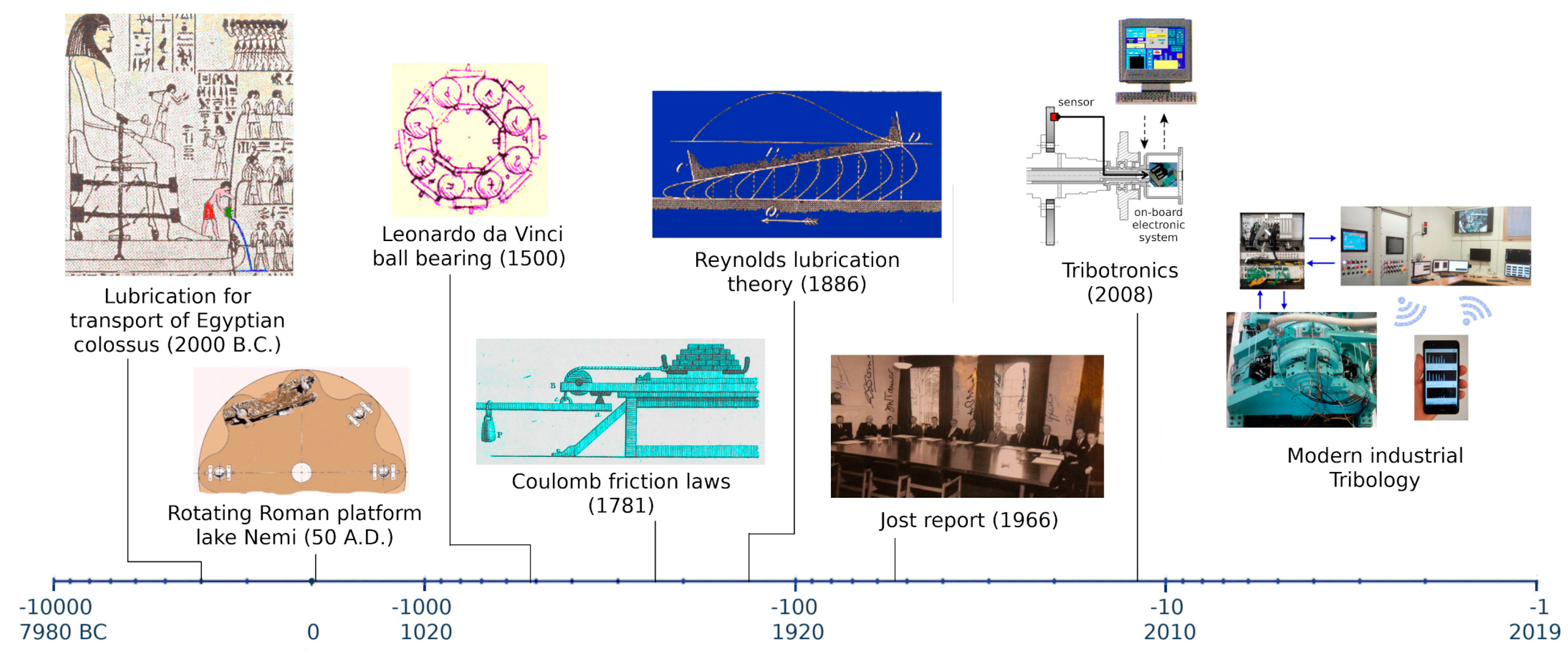
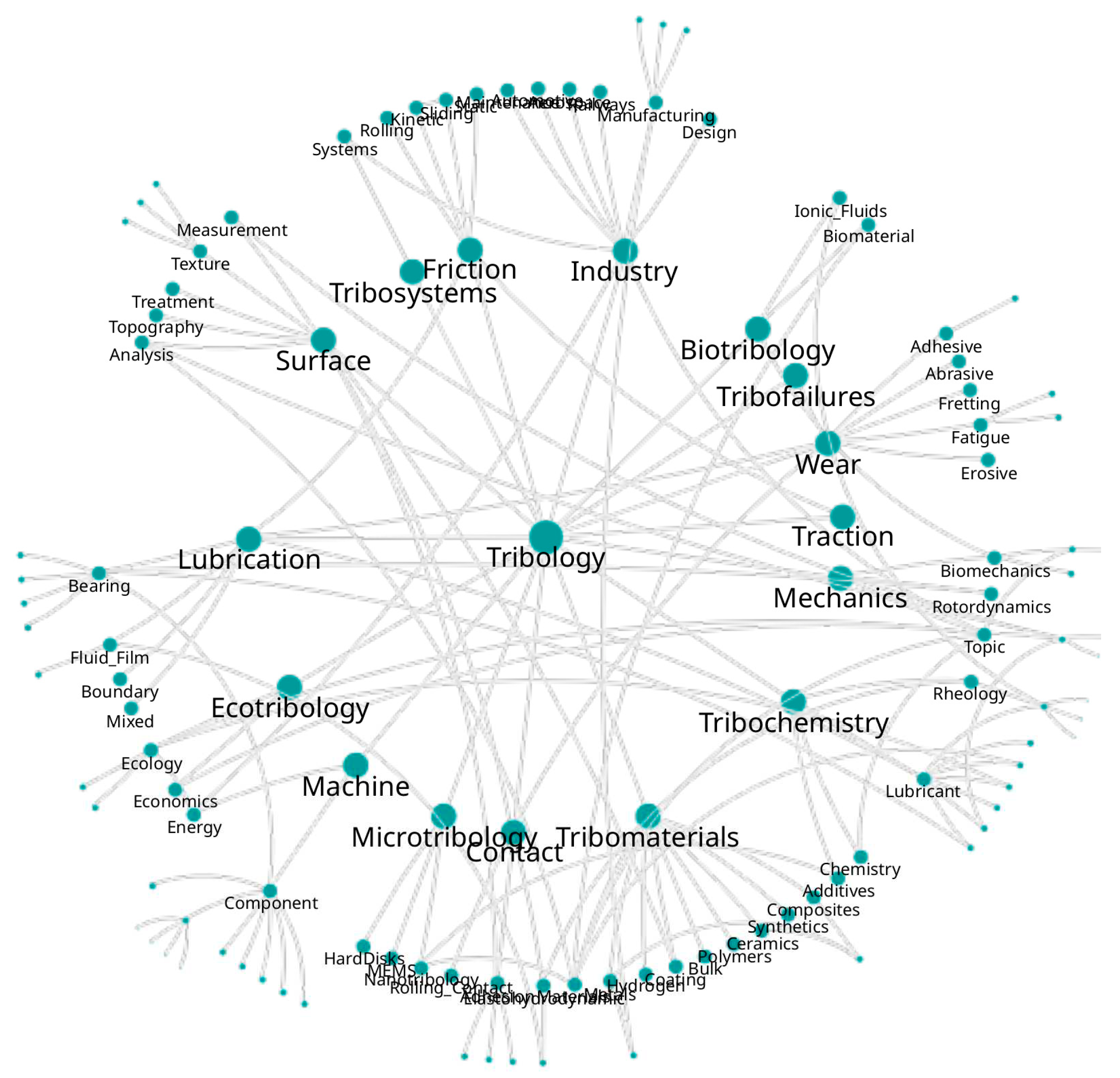
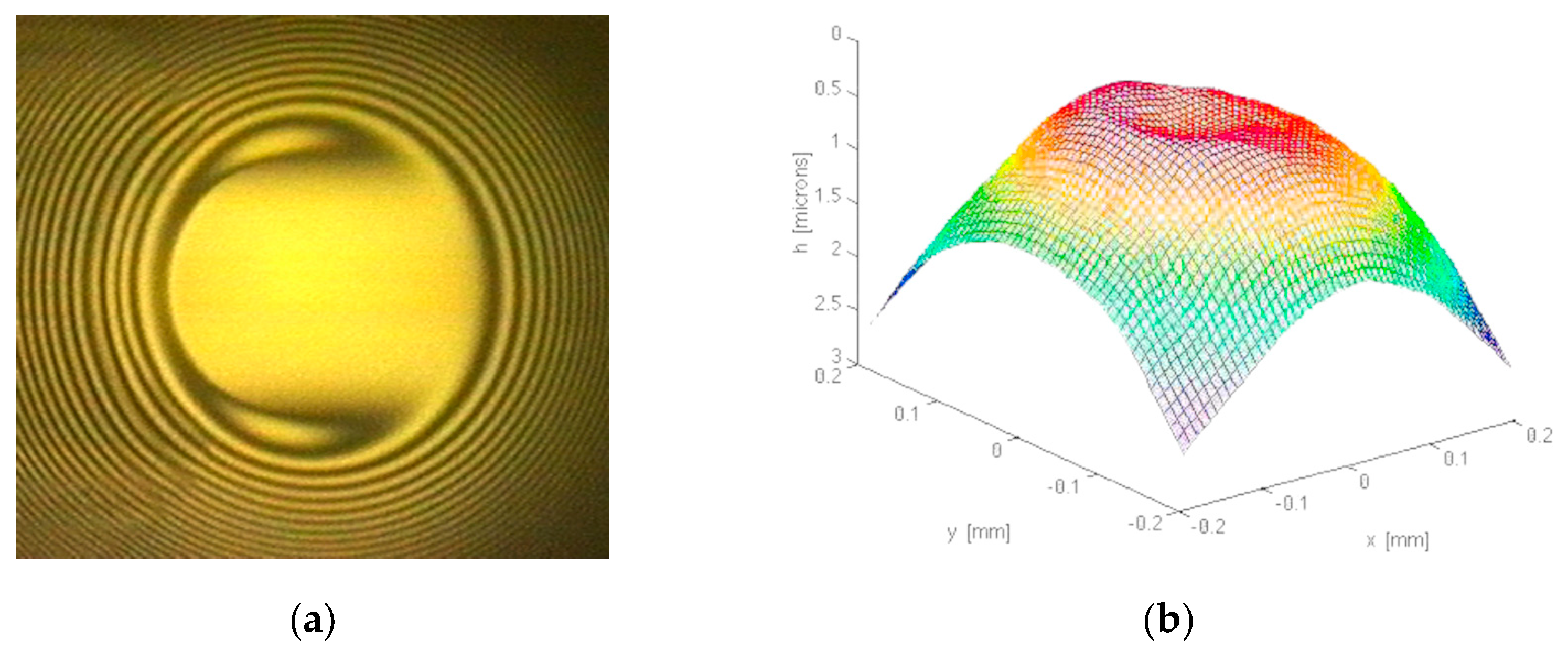
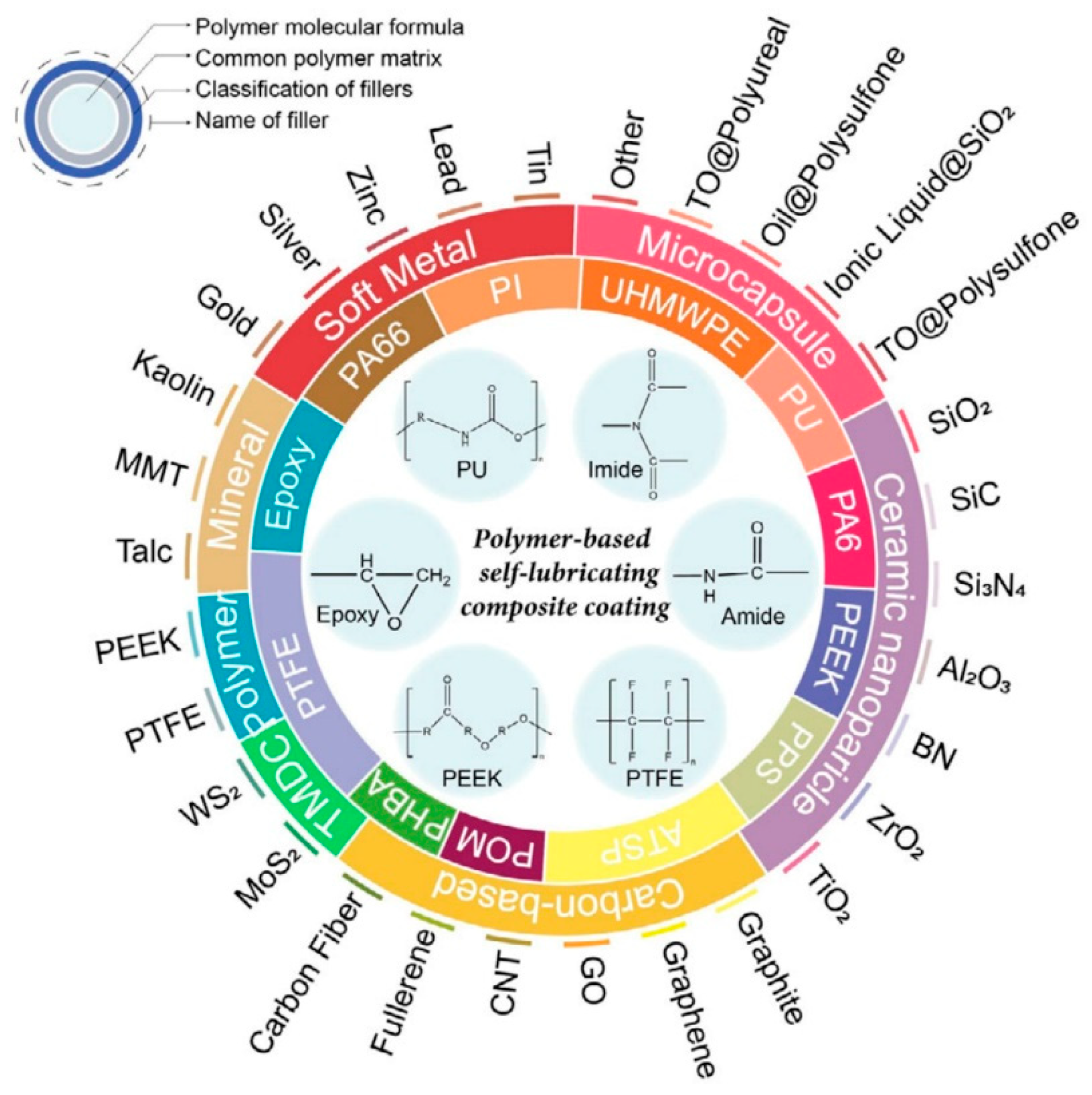
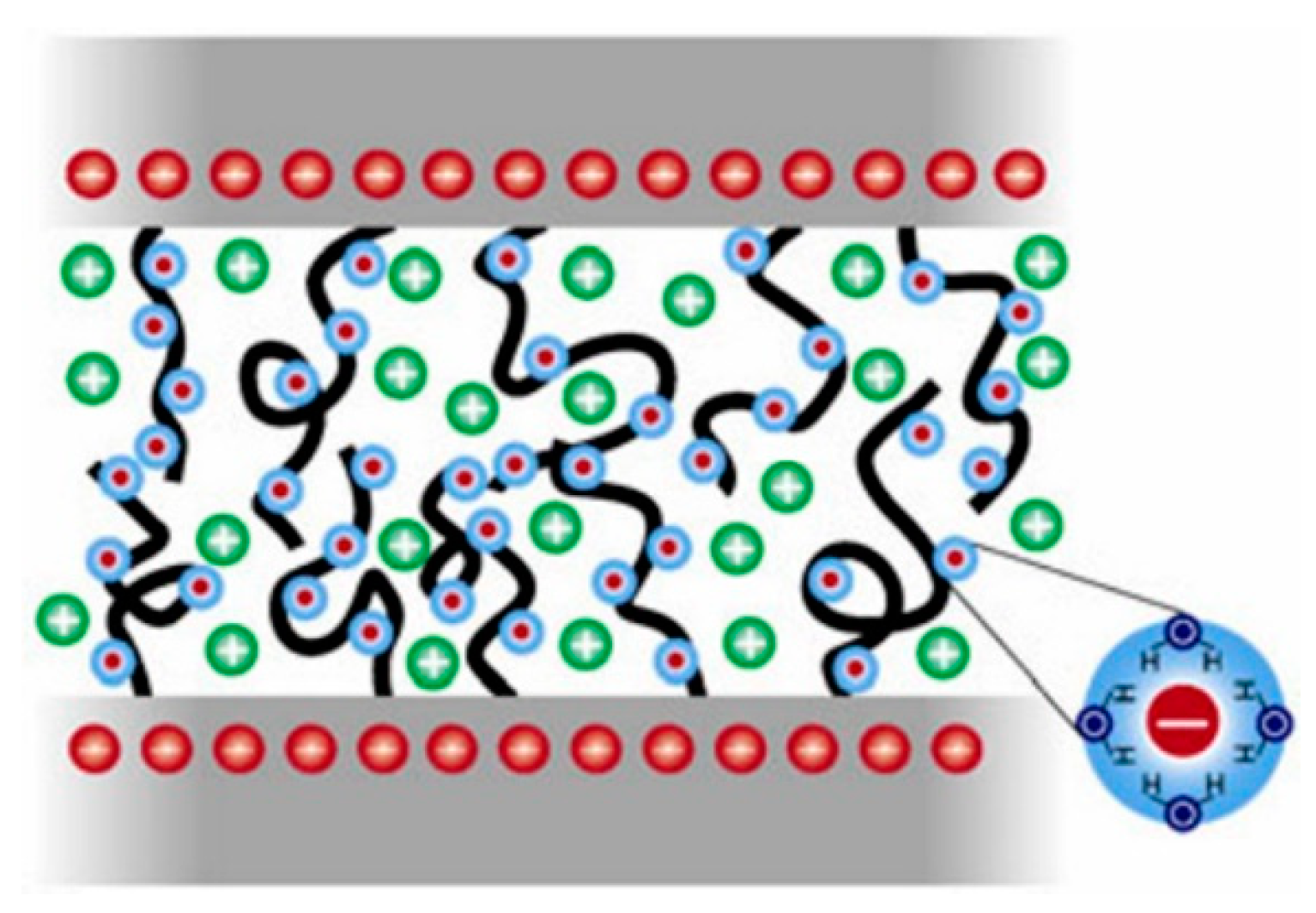

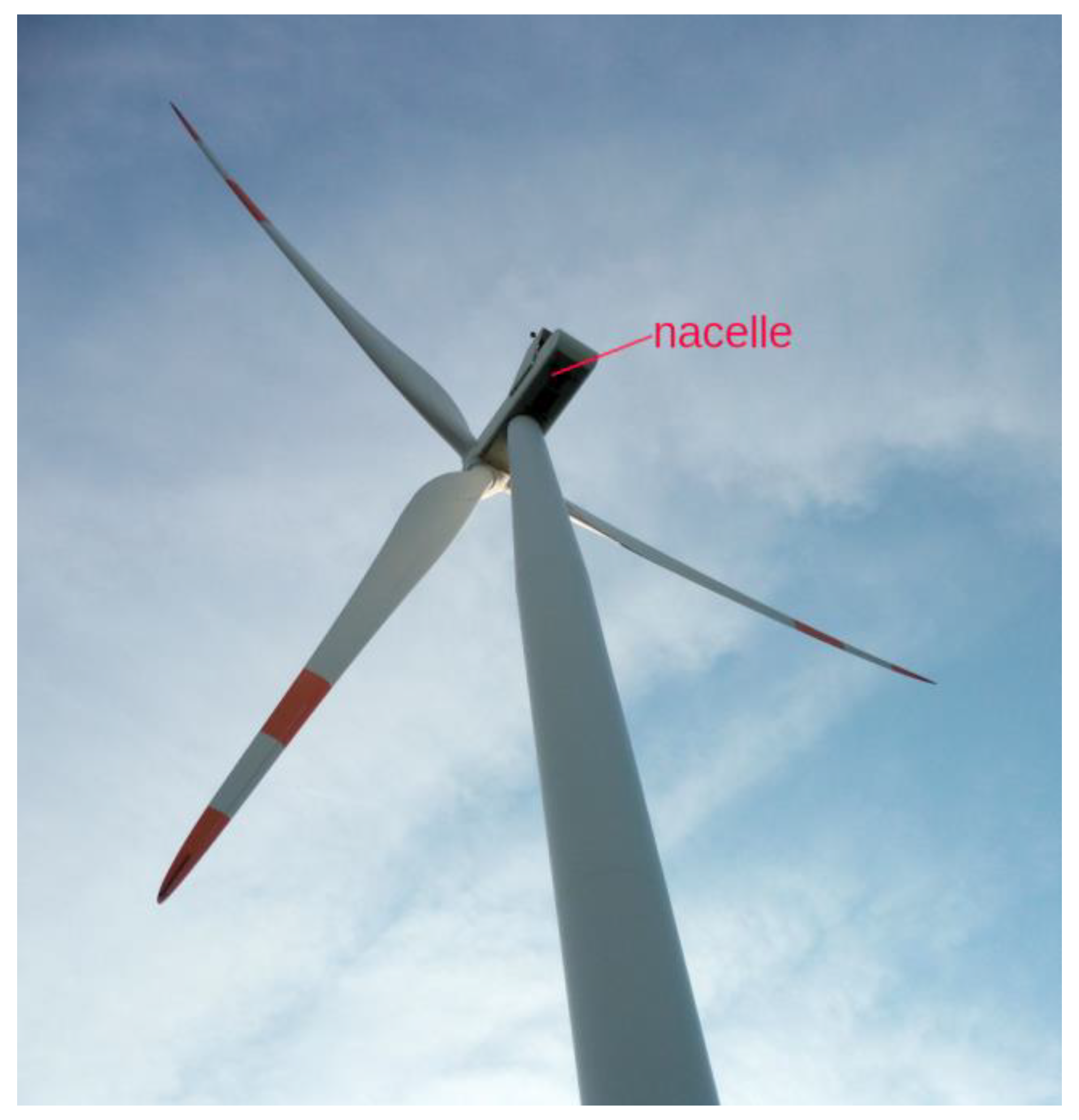
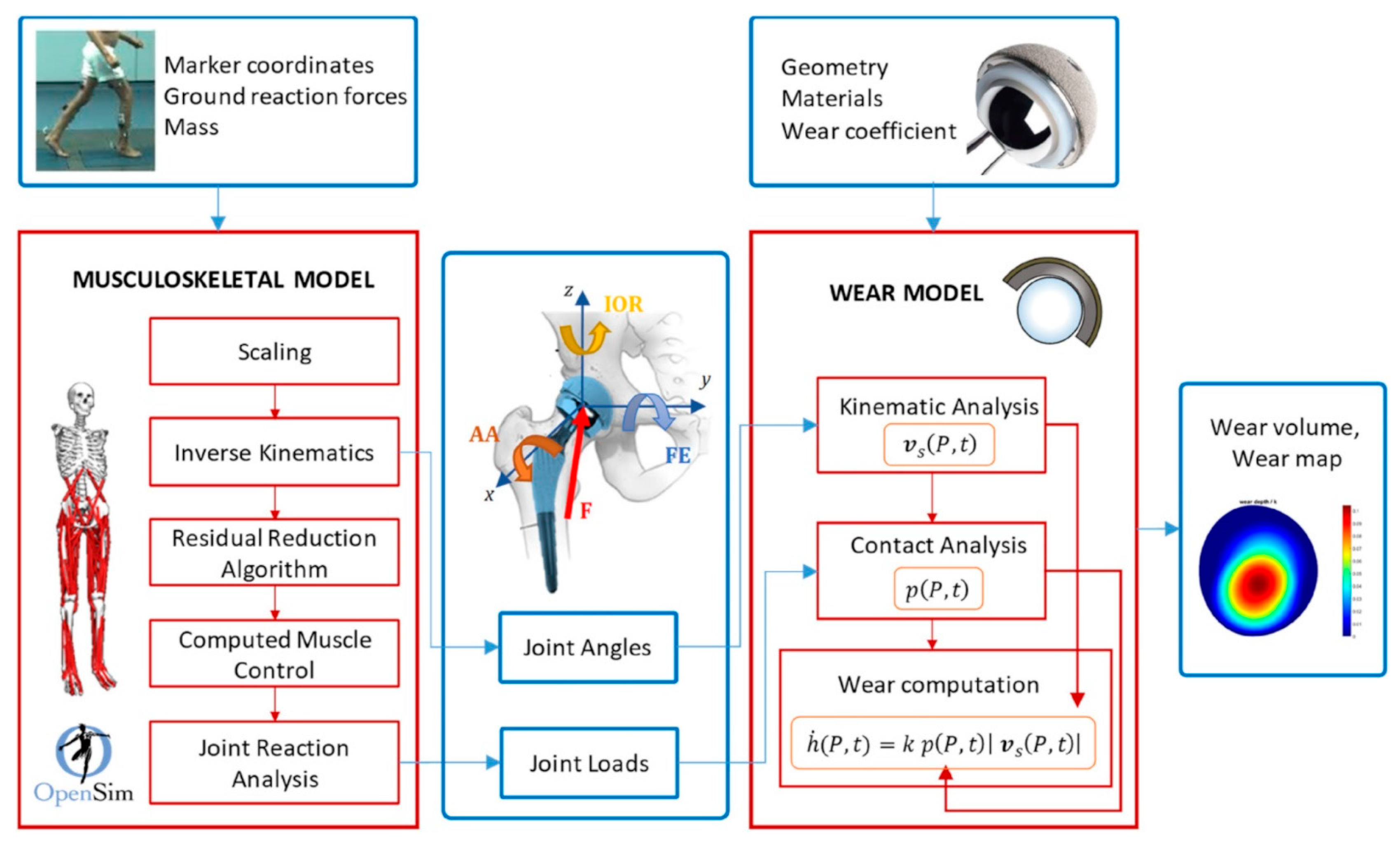
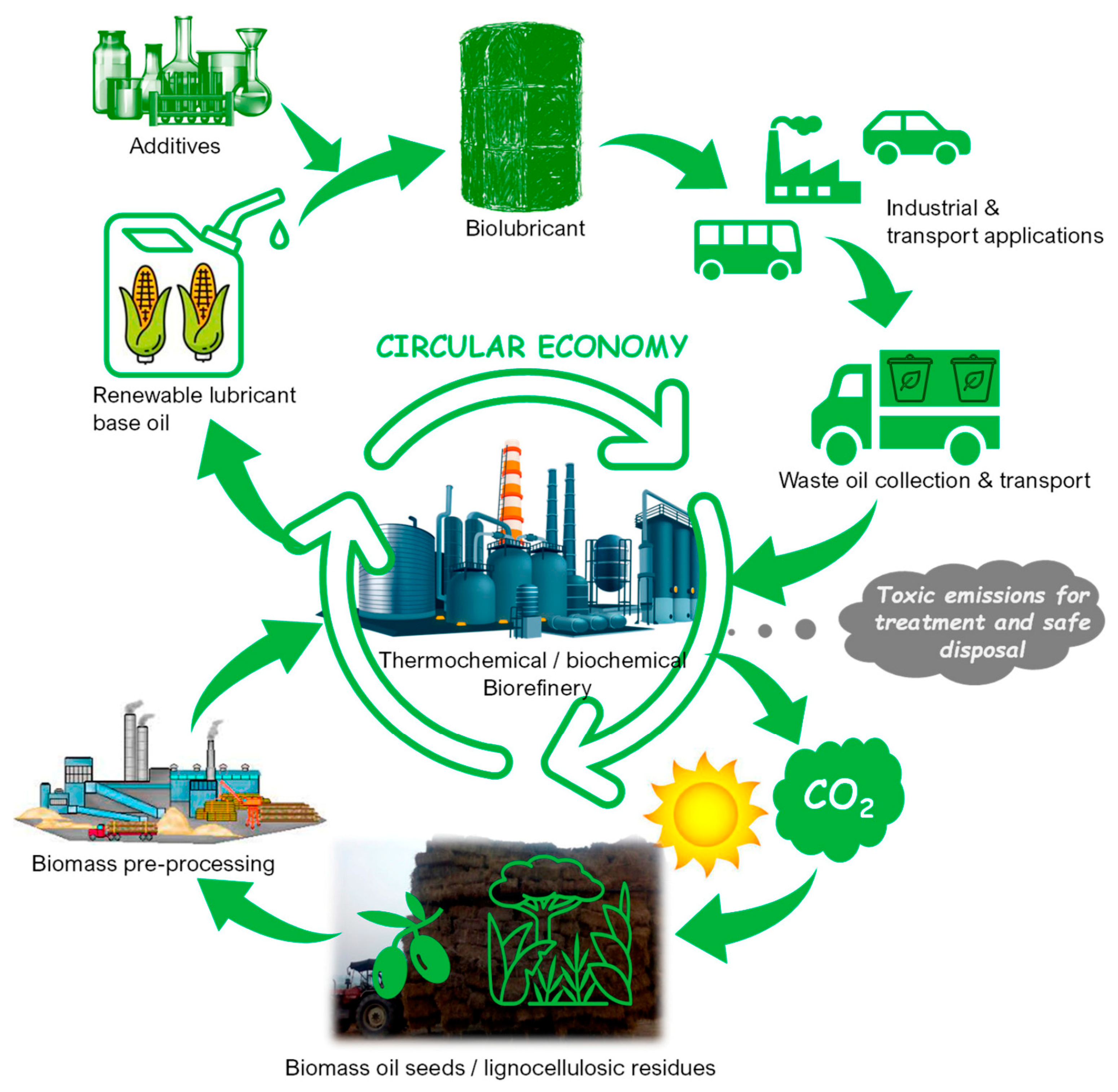
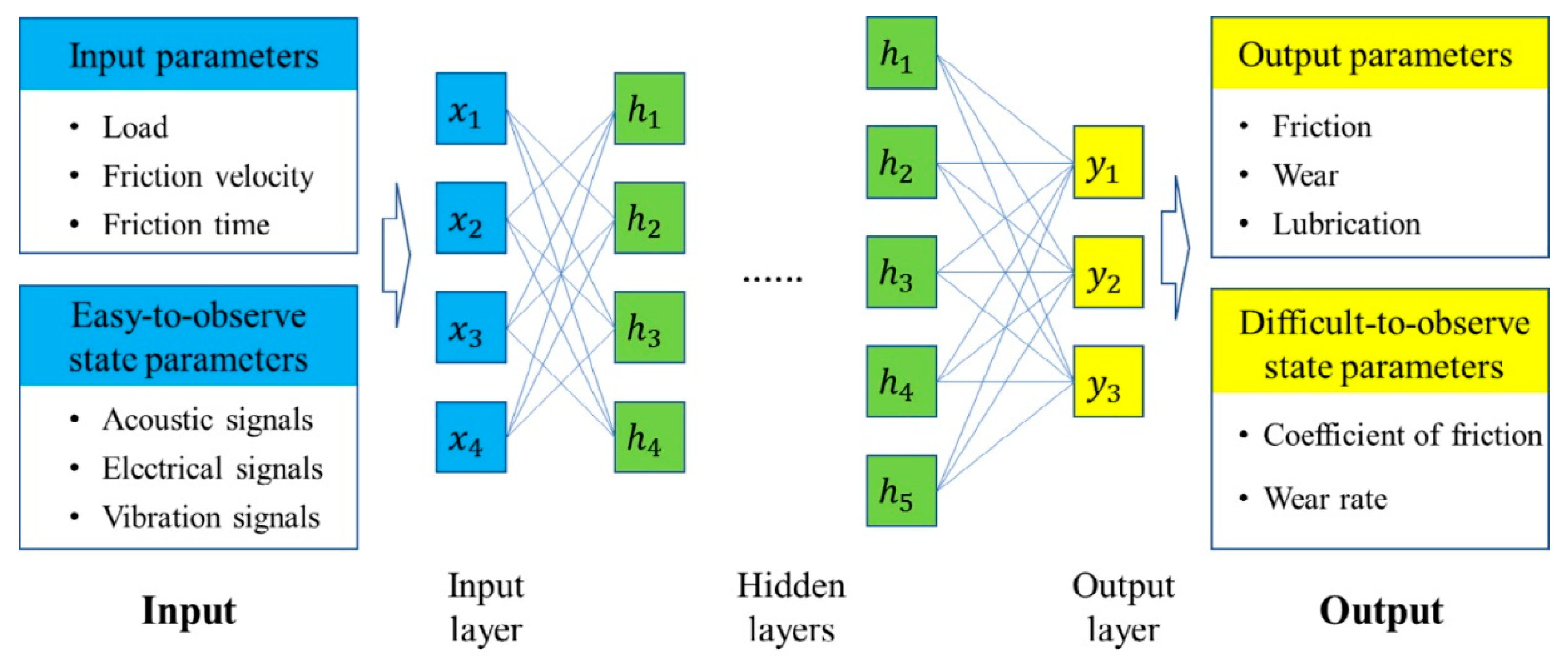

| Tribology branches | Main subjects |
|---|---|
| Fundamental Tribology | basic studies on friction, wear and lubrication, both theoretical and experimental |
| Tribology of Materials and Lubricants | materials, surface treatments, textures and coatings, lubricants and additives |
| Micro and Nanotribology | studies at micro and nano level, molecular dynamics, nano-materials and coatings |
| Industrial Tribology | applications of tribology to industrial products, manufacturing, and maintenance |
| Biotribology | biomedical applications, biomimetics, biomaterials, biolubricants |
| New Frontiers of Tribology | green tribology, tribotronics, triboinformatic, extreme environments tribology |
| Tribology subjects | Tribology branches | SDGs Targets | Sustainable Development Goals |
|---|---|---|---|
| prosthetic implants, heart valves and other medical devices device miniaturization with applications in medicine friction and wear reductions for minor energy losses and material waste minimum quantity lubrication new materials for reducing resource consumption and increasing efficiency and recycling, environmental friendly lubricants, additives, surface treatments and coatings more efficient systems with lower emissions, less material wastes through reduced dimensions, reuse, and reduced use of lubricants |
Biotribology Micro and Nanotribology Tribology of Materials and Lubricants Industrial Tribology |
3.8 ... access to quality essential health-care services … 3.9 ... reduce the number of deaths and illnesses from hazardous chemicals and air, water and soil pollution and contamination |
3 Good Health and Well-being |
| 6.3 ... improve water quality by reducing pollution, eliminating dumping and minimizing release of hazardous chemicals and materials … 6.6 … increasing recycling and safe reuse globally and to protect and restore water-related ecosystems, including mountains, forests, wetlands, rivers, aquifers and lakes 6.a ... water efficiency, wastewater treatment, recycling and reuse technologies |
6 Clean Water and Sanitation |
||
| friction reduction, wear control, tribotronics, efficiency and maintainability tribology applications to renewable energy systems as wind energy plants and hydropower |
Industrial Tribology | 7.3 ... double the global rate of improvement in energy efficiency 7.a ... facilitate access to clean energy research and technology, including renewable energy, energy efficiency ... promote investment in energy infrastructure and clean energy technology |
7 Affordable and Clean Energy |
| new lubricants, additives, surface treatments and coatings tribological design, more durable and efficient components, tribotronics, friction and wear control, reuse, minimum quantity lubrication, efficiency and maintainability reduction of friction and wear at micro- and nano level - device miniaturization with several micro and nano mechanics applications in medicine, biotechnology, optics, electronics, aviation environmental friendly lubricants |
Tribology of materials and lubricants Industrial Tribology Micro and Nanotribology Biotribology |
8.2 Achieve higher levels of economic productivity through diversification, technological upgrading and innovation … 8.4 Improve ... global resource efficiency in consumption and production and endeavour to decouple economic growth from environmental degradation ... |
8 Decent Work and Economic Growth |
| 9.4 ... upgrade infrastructure and retrofit industries to make them sustainable, with increased resource-use efficiency and greater adoption of clean and environmentally sound technologies and industrial processes … 9.5 Enhance scientific research, upgrade the technological capabilities of industrial sectors in all countries ... |
9 Industry, Innovation and Infrastructure |
||
| friction and wear reduction in transports, with several tribological components, as bearings and gears , and in buildings, with tribological contacts in common machines as electric motors, pumps and fans, and washing machines |
Industrial Tribology | 11.6 ... reduce the adverse per capita environmental impact of cities, including by paying special attention to air quality … 11.b ... increase the number of cities and human settlements adopting and implementing ... plans towards ... resource efficiency ... |
11 Sustainable Cities and Communities |
| reduction of friction (and therefore energy losses) and wear (with the related saving of materials), both in dry and lubricated contacts, with new materials and lubricants tribological design with more durable and efficient components, reuse, minimum quantity lubrication, efficiency and maintainability environmental friendly lubricants and additives |
Tribology of materials and lubricants Industrial Tribology Biotribology |
12.1 Implement ... programmes on sustainable consumption and production … 12.2 ... achieve the sustainable management and efficient use of natural resources 12.4 ... achieve the environmentally sound management of chemicals and all wastes throughout their life cycle ... and significantly reduce their release to air, water and soil … 12.5 ... reduce waste generation through prevention, reduction, recycling and reuse 12.a ... scientific and technological capacity to move towards more sustainable patterns of consumption and production |
12 Responsible Consumption and Production |
| industrial activities with reduced energy losses thanks to tribology reduced emissions related to lower friction losses, materials waste reduction, reduced pollution of small wear particles such as the ones produced by wear of tires and brakes tribology teaching - awareness of the importance of tribology for a reduced carbon footprint |
Industrial Tribology Tribology of materials and lubricants |
13.2 ... Integrate climate change measures into national policies, strategies and planning 13.3 Improve education, awareness-raising and human and institutional capacity on climate change mitigation, impact reduction |
13 Climate Action |
| reduction of exhausted lubricants e.g. through minimum quantity lubrication and oil reconditioning, wear control techniques to reduce wear particles non-toxic biodegradable lubricants, oil-free or water lubrication remanufaturing, tribological design for longer life of the components and biomimetic applications to reduce consumption of the natural resources |
Industrial Tribology Biotribology |
14.1 ... prevent and significantly reduce marine pollution of all kinds … 14.3 Minimize and address the impacts of ocean acidification, including through enhanced scientific cooperation at all levels. |
14 Life below Water |
| 15.1... ensure the conservation, restoration and sustainable use of terrestrial and inland freshwater ecosystems … 15.4 … ensure the conservation of mountain ecosystems |
15 Life on Land |
Disclaimer/Publisher’s Note: The statements, opinions and data contained in all publications are solely those of the individual author(s) and contributor(s) and not of MDPI and/or the editor(s). MDPI and/or the editor(s) disclaim responsibility for any injury to people or property resulting from any ideas, methods, instructions or products referred to in the content. |
© 2024 by the authors. Licensee MDPI, Basel, Switzerland. This article is an open access article distributed under the terms and conditions of the Creative Commons Attribution (CC BY) license (http://creativecommons.org/licenses/by/4.0/).




